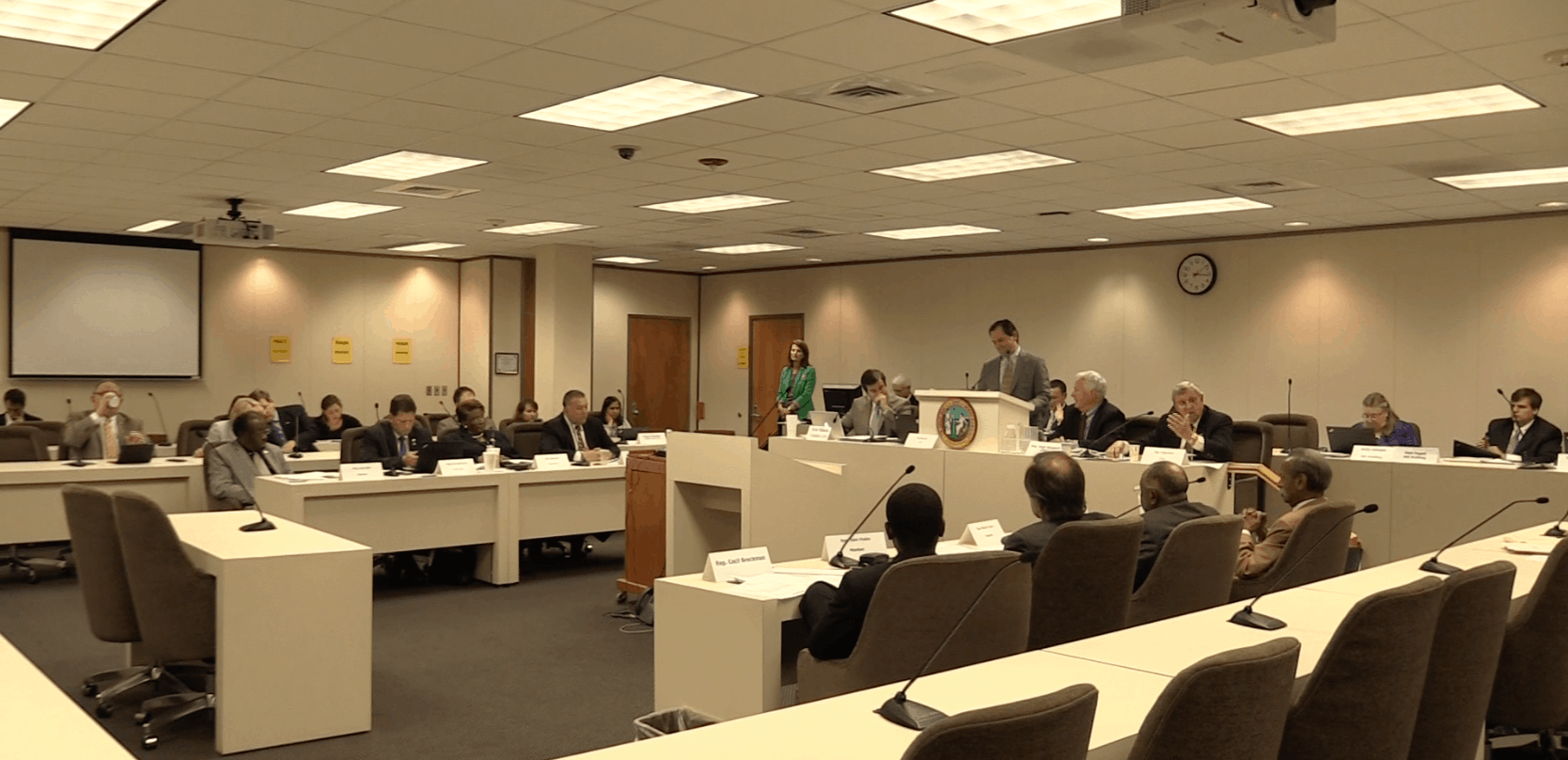The House Education Appropriations Committee dropped its revised 2016-17 education budget yesterday, and the K-12 portion covers everything from changes to the A-F grading system, to the elimination of a planned reduction in first-grade class sizes.
The 2016-17 budget was originally passed last session as part of the two-year budgeting process that covered 2015-2017. The revised budget presented by the Committee yesterday will need to go to the full House Appropriations Committee next.
What is bound to be one of the more controversial portions of the proposed budget is the elimination of almost $27 million for extra first-grade teachers that were intended to help shrink class sizes in the 2016-17 fiscal year. While no teachers had yet been hired, the reduction in class sizes was one of the hallmarks of the Senate’s contribution to the education budget last session — one that was sharply stripped down in the final budget. Take a moment to revisit our coverage of last session’s budget here.
Rep. Hugh Blackwell, R-Burke, one of the Committee’s chairs, said pulling back on that plan was a tradeoff he thought was necessary. It happened, in part, because of $25 million that the proposed budget would appropriate for literacy coaches. These coaches would be used to support Read to Achieve in the 20 percent of the state’s lowest performing elementary schools. He said the hope is that the value of the literacy coaches will be more than the one-student reduction in first grade classrooms.
That is also, in part, the reasoning behind a slash in the originally-planned budget for reading camps in the first and second grades. These camps are for kids in those grades demonstrating below grade-level reading comprehension. The budget passed last session appropriated $20 million in recurring funds for these camps in 2016-17. This revised budget cuts that in half and makes it a non-recurring expenditure.
Again, Blackwell said he thinks the literacy coaches will pick up some of that slack. He also wants to see how well this all works before committing recurring funds to the reading camps.
Another sure-to-be controversial provision in the preliminary House education budget is a major revision to the A-F School Performance Grades. They are currently determined based on a ratio of 80 percent school achievement score and 20 percent school growth score. In the House’s proposed revised budget, that would become an even 50-50 split. Also, the revised budget sets in stone the 15-point scale for the grading system. Originally, the School Performance Grades were eventually supposed to move to a 10-point grading scale. If you follow this link, you can look at a map of the entire state and see for yourself the distribution of grades that schools would receive based on a 50-50 split, or any other ratio you can think of. You can also change the map to reflect a 10- or 15-point grading scale.
The House proposed revised budget also makes changes to the acceptable withdrawal rates at North Carolina’s Virtual Charter Schools. Originally, the schools had to keep their withdrawals rates below 25 percent. Now, they would have to keep them below 35 percent.
This is particularly interesting in light of the relatively high withdrawal rates the schools have been experiencing since launch. Billy Ball at NC Policy Watch has been reporting on the issue.
He wrote that more than 25 percent of students dropped out of the online school North Carolina Connections Academy in its first five months. The other virtual charter school, North Carolina Virtual Academy, experienced about 26 percent withdrawal in the same time period.
Other notable items in the proposed revised education budget included $8.5 million for the Principal Preparation Program passed last session, $2 million for student scholarships to become teachers in hard-to-staff licensure areas and $5.8 million for special education scholarships. Those three items were part of the UNC System portion of the education budget. The K-12 portion also allocates an additional $11.67 million for textbooks and digital materials,
In total, the changes to the budget will require the General Assembly to appropriate an additional $12.9 million from the General Fund for K-12 education. Teacher pay was not addressed in this preliminary budget proposal but will instead be taken up later by the full House Appropriations Committee.
At the end of the Committee, the members voted to accept the report of the House’s draft of the education budget.
Here is the money report on the budget.
Here is the special provisions report.
See below the video of Brian Matteson of the General Assembly’s Fiscal Research Division walking the committee through the budget.
Below is the question and answer portion of that presentation.
Below is the video of the education budget amendments discussion.



